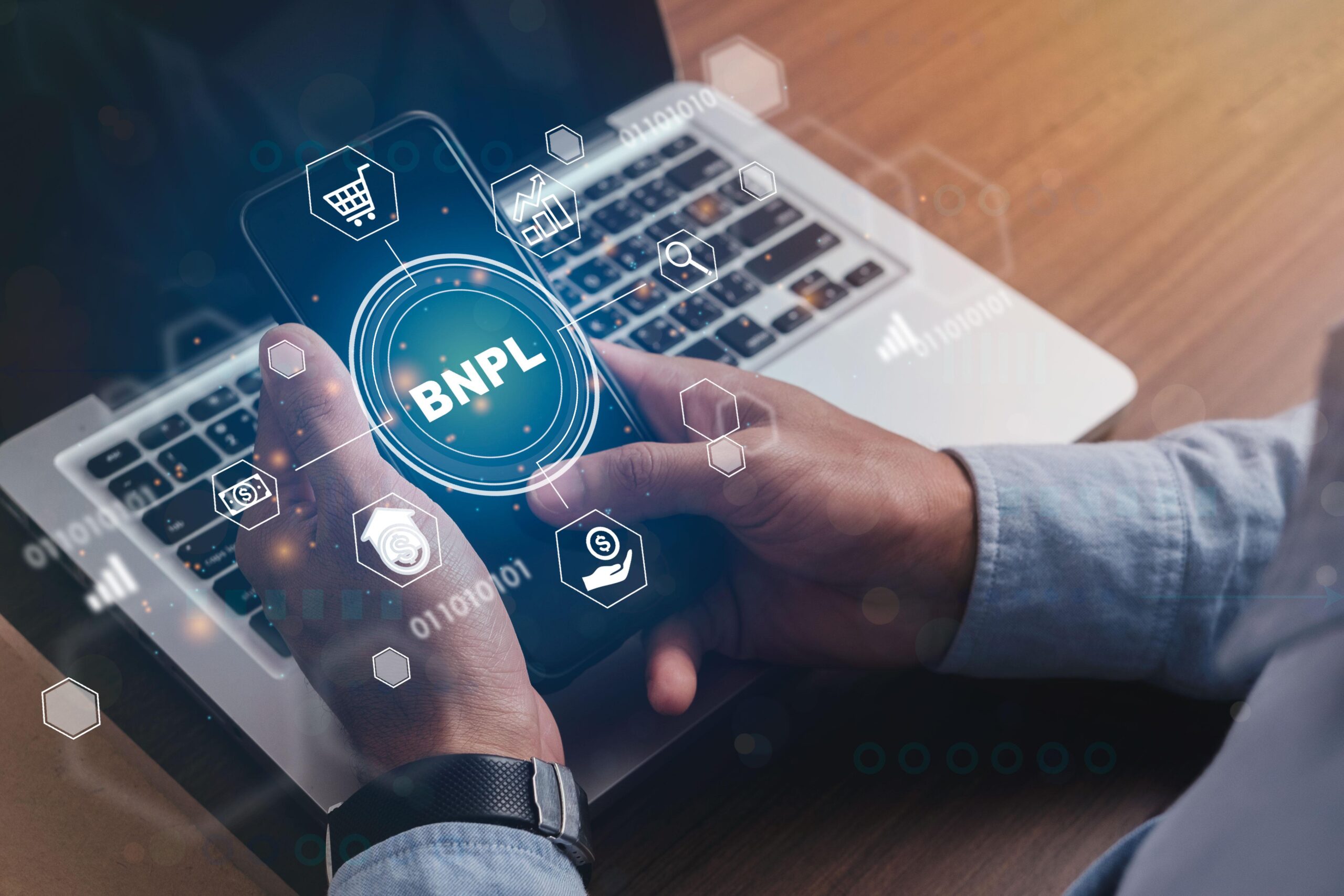
Businessmen holding a smartphone with icons of BNPL with online shopping icons technology. BNPL buy … [+]
Consumers don’t always realize buy now, pay later (BNPL), a new spin on the concept of layaway, is a form of credit or a loan, as they continue their holiday shopping. BNPL companies had a major jump in online sales during the week of Black Friday (Nov. 21 to Nov. 27) up 68% compared to the previous week, according to the latest Adobe Analytics. CNBC’s Small Business Survey reported higher BNPL popularity among Black and Hispanic Americans with 12% of Blacks and 13% of Hispanic Americans saying they use BNPL for holiday purchases, compared to only 5% of white Americans.
The Breakdown You Need To Know:
The BNPL market expected to reach $3.98 trillion by 2030, according to Allied Research. CultureBanx noted that here-in lies the issue, because many consumers don’t fully understand this new form of debt financing, it’s easy to get caught up in a bad financial situation. Currently, 27% of Black households are late on paying their debts. Lending Club’s Holiday Season report found that 37% of Americans plan to use financing such as personal loans, credit cards and buy now, pay later this holiday season, up from 34% in 2021.
Younger people are helping to fuel the BNPL economy. Nearly half of millennials and members of Generation Z say they are highly likely to finance at least one of their holiday purchases using options like credit cards, BNPL or personal loans, according to the Lending Club report. Last year alone, Americans spent $20.8 billion through these BNPL services, with purchases overall up 230% since the start of 2020, according to a study by Accenture
If we go even further back, from 2019 to 2021, the dollar volume of BNPL loans issued by five companies including Affirm, Afterpay, Klarna, PayPal
What’s Next:
Traditionally BNPL is offered just for online spending, now, the plans have been extended to include some in-store purchases too, and credit-card issuers are getting into the act as well. This includes stores like Dollar General
MORE FOR YOU
Aslo, The CFPB plans to start regulating the “buy now, pay later” industry. The CFBP, which does not currently oversee BNPL companies or products, will issue guidance or a rule to align sector standards with those of credit card companies.







